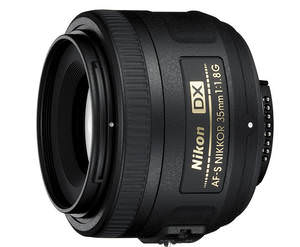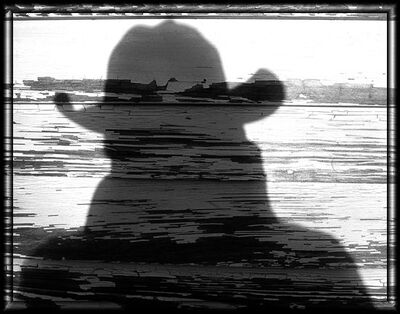Check out Landscape Photography section of our forum.
Prime lens.
Jan 26, 2017 16:53:31 #
One only needs to delve into the use of tools like these found in PP programs- levels, brightness/contrast and shadows/highlights- to find just how much is hiding in a low light/underexposed image.
Bill P wrote:
The idea that you need a fast prime for low light is fast losing relevance. Today's cameras are already shooting in light that was too low to produce an image in the film and early digital days.
There is a disipline that you will learn using a prime, but many have gotten past that with zooms.
There is a disipline that you will learn using a prime, but many have gotten past that with zooms.
Jan 26, 2017 17:14:16 #
therwol
Loc: USA
Bill P wrote:
The idea that you need a fast prime for low light is fast losing relevance. Today's cameras are already shooting in light that was too low to produce an image in the film and early digital days.
There is a disipline that you will learn using a prime, but many have gotten past that with zooms.
There is a disipline that you will learn using a prime, but many have gotten past that with zooms.
I agree with this. A fast prime is useful for purposely isolating a subject with shallow depth of field. This can be pretty tricky. If your focus is off by even a small amount, it can ruin a picture. For general picture, modern cameras can function at ridiculously high ISO without much degradation of the image, and a zoom lens now becomes useful in dim light. Fast lenses can let in more light, but the shallow depth of field may not be what you're looking for in a picture.
Jan 26, 2017 17:19:31 #
There is more to a wide aperture than exposure. DOF can be a useful tool when composing an image. I don't want to count on post processing to accomplish things I should be able to see in the viewfinder.
--
--
Check out True Macro-Photography Forum section of our forum.
Jan 26, 2017 17:37:43 #
cthahn wrote:
I didn't expect condemnation on this forum so thanks for nothing!This is the lens you should have started with instead of zoom lenses. A 35 mm for a DX camera and a 50mm for full frame camera and learn the basics of photography instead of playing zoom.
Jan 26, 2017 18:05:52 #
d3200prime wrote:
I was bitten by the photography bug about six months ago. I shoot with a Nikon D3200. I have no desire to become a professional but want to make photography a serious hobby. I own two lenses: Nikon 18-70 and Nikon 70/300 but I understand a prime lens should also be part of my kit. My question is which prime would be a good all around lens ie landscape, head shots to full length portriats along with group portriats? Thanks in advance for help on this matter.
I think that on a crop frame camera if I could only have one prime lens for all around shooting it would be a fast 35mm lens.
Jan 26, 2017 18:17:10 #
d3200prime wrote:
I didn't expect condemnation on this forum so thanks for nothing!
I didn't see that comment as condemning you (though it is for its author). The problem is that it is not valid. To learn the basics of photography you have the right tools! That is what an "Entry Level" kit is all about! A couple of inexpensive and only half decent zooms that cover a good range of focal lengths. The next steps are to replace first one lens and then the other with better quality zoom lenses. Only after that should fixed focal length specialty lenses be considered.
If you decide that serious photography truly is for you then perhaps the better quality set of zooms should really be high quality. Perhaps you just need "dang good" or perhaps just good enough (your 18-70mm fits). Frankly if you get really serious and go for the best pro quality zooms you'll never need fixed focal length lenses for most purposes. Macro, fisheye and very long telephotos are good cases for fixed focal lengths. Also a studio portrait lens.
But until you have your ultimate collection of appropriate zooms it isn't possible to actually know what you need or can benefit from in the way of specialty lenses. And make no mistake, fixed focal length lenses are narrowly purposed specialty tools. Once you actually have learned the basics and have picked up a set of general purpose tools it will be time (and possible) to know specific areas where buying the best is important to enjoying your work. If you acquire a Nikkor 24-70mm f/2.8 and shoot head shots there may not be a better lens...
And remember that focal length does not set perspective, as many claim. It only sets framing.
Jan 26, 2017 18:19:25 #
d3200prime wrote:
I didn't expect condemnation on this forum so thanks for nothing!
There are some on this site you just need to ignore.
cthahn is one of them.
Check out The Dynamics of Photographic Lighting section of our forum.
Jan 26, 2017 18:26:06 #
d3200prime wrote:
I was bitten by the photography bug about six months ago. I shoot with a Nikon D3200. I have no desire to become a professional but want to make photography a serious hobby. I own two lenses: Nikon 18-70 and Nikon 70/300 but I understand a prime lens should also be part of my kit. My question is which prime would be a good all around lens ie landscape, head shots to full length portriats along with group portriats? Thanks in advance for help on this matter.
I think this would be a good start for you. This lens will act closer to what a 50mm prime lens on a full frame camera would. I wish Canon would come out with one like this I would get it right away before they were all gone. This little 35mm DX comes at a good price too!
_____________________________jerry in NC

Jan 26, 2017 18:44:43 #
Especially those who "insist" that in order to be a "Photographer rather than a Snap Shot Shooter" you need to have a Million dollars worth of the lens they use. If you are turning out photos that you are happy with - your lens kit is fine - when one decides they want to indulge in a field of photography that their kit does not work well in - the it is time to research what lens to move up to.
My kit lens 18-55 and 100-300 made me quite happy with my results - but I did need to research macro lens - also how to use and when not to use a mirrored 500, I do have prime Nifty Fifty but my kit lens is maxed at 55mm so I don't use it. I am currently testing an old manual 28-200 that I feel is going to fit right in between my kit lens capability and is going to be a challenge to master.
Good luck i you lens hunt and post your results.
Harvey
0
My kit lens 18-55 and 100-300 made me quite happy with my results - but I did need to research macro lens - also how to use and when not to use a mirrored 500, I do have prime Nifty Fifty but my kit lens is maxed at 55mm so I don't use it. I am currently testing an old manual 28-200 that I feel is going to fit right in between my kit lens capability and is going to be a challenge to master.
Good luck i you lens hunt and post your results.
Harvey
0
GoofyNewfie wrote:
There are some on this site you just need to ignore.
cthahn is one of them.
cthahn is one of them.
Jan 26, 2017 19:52:02 #
Harvey wrote:
This is all to much speculation on how and what is in the composition - it is a bunch of "poo Poo" to chatter on about full frame and cropped when the user is not one bit interested in what gets cropped out of a full frame when they get what they want from a cropped.
When one has their camera set for large photos it is darn easy to take a step or two back to get "your full frame" shot.
.
When one has their camera set for large photos it is darn easy to take a step or two back to get "your full frame" shot.
.
The problem with "stepping back" with a 50mm on a crop camera is that indoors you would have to move a wall to step back and get allyou want in the shot. - Dave
Jan 26, 2017 20:03:29 #
wilsondl2 wrote:
The problem with "stepping back" with a 50mm on a crop camera is that indoors you would have to move a wall to step back and get allyou want in the shot. - Dave
Dave, a real photographer does whatever it takes.

--
Jan 26, 2017 20:33:23 #
Bill_de wrote:
Dave, a real photographer does whatever it takes. 
--

--
And taking a step back, i.e. sneaker zoom, is never appropriate. The workflow is to find a location that provides the desired perspective. Anchor your sneakers there, and don't move because you cannot get the picture you want from any other location.
Of course after you have a set location the need is to properly frame the image. That is done by selecting the right focal length. It is obviously a lot easier with a zoom, but selecting from a bag full of fixed focal length lenses works too.
Jan 26, 2017 20:41:50 #
FiddleMaker wrote:
A 35mm on a DX body will appear in the view finder to be similar to an FX 50 on an FX body. Actually, the 35 DX will appear as a 53 FX (35 times the crop factor of 1.5=53) Have I got that right ?
On a different subject I tried to attach my Nikon FX 28-300 (for my D750) to my Nikon D7000 DX body but it went on with MUCH difficulty. Had trouble getting it off. So I won't do that again.
Perhaps I'll sell off all my Nikon stuff and get me a Leica M10.
On a different subject I tried to attach my Nikon FX 28-300 (for my D750) to my Nikon D7000 DX body but it went on with MUCH difficulty. Had trouble getting it off. So I won't do that again.
Perhaps I'll sell off all my Nikon stuff and get me a Leica M10.
Do you really like the M10 better?
Jan 26, 2017 21:29:11 #
Apaflo wrote:
I didn't see that comment as condemning you (thoug... (show quote)
One question - How were all the great photos taken before zooms? - Dave
Jan 26, 2017 21:31:24 #
jackpinoh
Loc: Kettering, OH 45419
d3200prime wrote:
I was bitten by the photography bug about six months ago. I shoot with a Nikon D3200. I have no desire to become a professional but want to make photography a serious hobby. I own two lenses: Nikon 18-70 and Nikon 70/300 but I understand a prime lens should also be part of my kit. My question is which prime would be a good all around lens ie landscape, head shots to full length portriats along with group portriats? Thanks in advance for help on this matter.
Don't buy a prime lens yet. Use the lenses you have for at least six months. Then use Lightroom or some other image processor to find out what your most used focal length is. Then, IF you are unsatisfied with your image quality, buy a prime lens at or nearest to the most used focal length.
If you want to reply, then register here. Registration is free and your account is created instantly, so you can post right away.
Check out Astronomical Photography Forum section of our forum.







